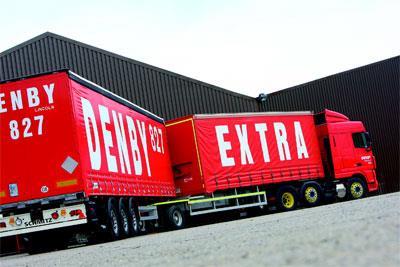
Campaign group Freight on Rail has called the findings of recent research into longer heavier vehicles (LHVs) by the University of Huddersfield into question.
The pressure group has countered in its own report that their introduction would lead to reduced, rather than increased, efficiency and bring greater environmental and safety costs than envisioned.
The Freight on Rail report suggests LHVs could easily become the new standard vehicle in logistics, rather than being taken up purely by those who could consistently take advantage of their extra capacity.
It added that this may lead to even greater levels of empty running, with obvious ramifications for operating costs and emissions per tonne. The report also claims that due to their bigger footprint and manoeuvrability issues, as well as the greater safety envelope required around larger vehicles, LHVs would increase congestion.
"Past evidence shows most vehicle operators will always opt for the biggest and heaviest vehicles for the sake of flexibility," Freight on Rail manager Philippa Edmunds told MT. “If you look at current trends, a lot of fleets are standardised on the biggest lorry,” she said.
She also questioned whether the introduction of LHVs would really lead to fewer vehicles on the roads. “If they can’t fill existing lorries, why would they suddenly get better utilisation out of bigger ones?” she asked.
Questionable logic
David Leach, senior lecturer within the transport and logistics department at the University of Huddersfield, and one of the authors of the original report, said he welcomed the debate surrounding utilisation but questioned the logic in some of Freight on Rail’s arguments.
“The debate about whether LHVs are better or worse for the economy and the environment does centre around utilisation,” he agreed. “But to say people will invest in these trucks and then use them less and not access their economic benefit is absolute madness: the only reason a hard-pressed haulier with low margins is going to invest in this extra capacity is if he is going to use it.”
Leach denied LHVs would increase empty running, pointing out that since they are divisible, operators not requiring their extra capacity on any given day could simply leave one of the two trailers back at base.
Freight on Rail’s suggestion that LHVs would increase congestion was also questionable, said Leach. “The basic maths is that if you carry the same goods as you currently have in three vehicles in two, that should lead to a benefit in terms of road space,” he said.
“I’m a supporter of rail freight, but it upsets me that rather than looking internally at how the rail freight sector can become more efficient, effective and sustainable, they are just trying to stop their competitors from becoming more efficient, effective and sustainable,” Leach added. “Trying to stop the rest of the transport industry from doing something that makes them more sustainable just doesn’t make sense to me.”













